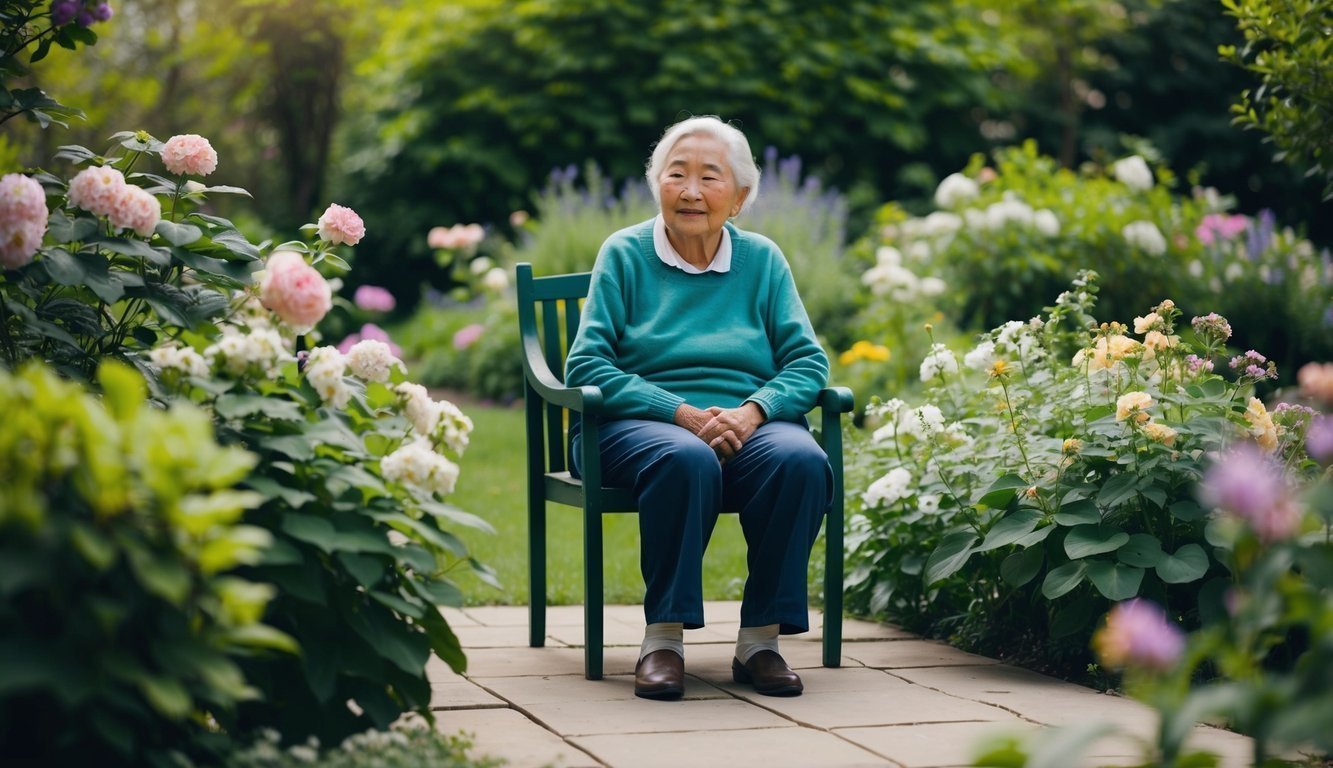PsychNewsDaily Publishers
100 Summit Drive
Burlington, MA, 01803
Telephone: (320) 349-2484
PsychNewsDaily Publishers
100 Summit Drive
Burlington, MA, 01803
Telephone: (320) 349-2484
Aging involves cognitive transformations, emotional growth, and social dynamics that significantly impact psychological well-being, requiring adaptive lifestyle choices and strong social connections for healthier aging.

The psychological dimensions of aging encompass intricate cognitive transformations and emotional growth. These elements influence how individuals adjust and flourish in their later years.
Cognitive abilities experience profound changes as individuals age. Memory may show slight deterioration, especially in areas such as working memory and episodic recall. Additionally, processing speeds might decrease, impacting reaction times and the ability to process information.
However, not all cognitive skills diminish at the same rate. Crystallized intelligence, encompassing accumulated knowledge and experiences, often remains stable or even increases. Research in neuroscience reveals that the aging brain can showcase impressive adaptability.
Engaging in mentally stimulating activities is essential for preserving cognitive health. Challenges such as learning new skills or tackling complex problems can help maintain cognitive abilities and may slow down cognitive decline.
Contrary to common perceptions, personality does not become fixed with age. Studies suggest that traits like conscientiousness tend to rise while neuroticism often diminishes. This progression can lead to better emotional regulation and higher life satisfaction among older individuals.
Resilience has a crucial role in positive aging. Many older adults develop adaptive approaches to navigate life’s changes and adversities, focusing on meaningful relationships, setting achievable goals, and fostering optimism.
As individuals age, emotional experiences often gain complexity. Although the occurrence of negative emotions may lessen, the intensity of emotional experiences can remain profound. This emotional depth contributes to wisdom and enhances interpersonal skills for many older adults.

Psychological health is integral to the aging process, significantly affecting the overall well-being and quality of life for older adults. Various mental health conditions can substantially influence psychological wellness as individuals age.
Depression stands out as one of the most prevalent mental health challenges faced by older adults. It can result in lower quality of life and a heightened risk of physical health issues. Anxiety disorders are also commonly observed, often manifesting as excessive worry regarding health or finances.
Dementia, including Alzheimer’s disease, impacts a notable segment of older adults. It can result in cognitive decline, memory impairment, and behavioral changes. Early identification and intervention are vital for effective management of these conditions.
Loneliness and social isolation are increasing issues among older adults, contributing to poor mental health outcomes and raising the risk of cognitive deterioration.
Chronic health issues frequently influence the psychological well-being of older adults. Managing multiple health concerns can be stressful and might lead to depression or anxiety.
Maintaining social bonds is crucial for emotional wellness. Engaging in community activities, volunteering, or frequent social interactions can uplift mood and bolster cognitive abilities.
Regular physical activity is essential for promoting mental health in older adults. Consistent exercise can elevate mood, mitigate stress, and improve cognitive functions.
Quality of sleep becomes increasingly significant with aging. Inadequate sleep can adversely affect mood, cognitive functions, and overall psychological health.

Aging greatly influences social relationships and interactions, which in turn affect psychological wellness and life quality for older adults.
Social relationships are vital to the aging experience. As people age, their social circles often shrink due to retirement, relocation, or the loss of loved ones. This decline can lead to feelings of loneliness and isolation.
Maintaining strong social ties becomes increasingly important for psychological health. Older adults who have robust social connections often display enhanced cognitive function and emotional health. These relationships offer emotional support, practical help, and a sense of belonging.
Ageism can adversely affect social dynamics. Stereotypes and age-based discrimination may lead to social exclusion and fewer opportunities for engagement. Addressing ageism is crucial to fostering positive social interactions and preserving self-esteem among older adults.
Social support and active participation play significant roles in the psychological well-being of aging individuals. Regular social interactions can enhance cognitive skills and decrease the risk of mental health conditions like depression and anxiety.
Engaging in community activities, volunteering, or joining social clubs can instill a sense of purpose and community. Such experiences provide opportunities for continuous learning, self-growth, and forming new relationships.
Strong social support networks can positively influence health-related behaviors. Older adults with supportive connections are more likely to follow medical recommendations, eat healthily, and partake in regular physical activities.
Encouraging diversity and inclusion within social settings for older individuals is vital. This ensures that people from various backgrounds feel welcome and appreciated, enhancing overall social health.

Behavioral choices and lifestyle practices significantly influence psychological well-being as individuals age. These elements can greatly affect health outcomes and overall life satisfaction while navigating the aging process.
Health behaviors such as smoking, dietary habits, and levels of physical activity vastly impact the mental wellness of older adults. Quitting smoking is linked to better mental health and a lower chance of cognitive decline. Maintaining a healthy diet can also boost mood and self-esteem.
Regular physical activity is especially beneficial for psychological well-being within aging populations. It alleviates symptoms of depression and anxiety while enhancing cognitive capabilities. Engaging in at least 150 minutes of moderate aerobic exercise each week is recommended for older adults.
Social engagement and cognitive challenges are essential health practices. Taking part in group activities, acquiring new skills, and preserving strong social connections contribute to successful aging and increased satisfaction with life.
As individuals age, there is often a need to adjust their lifestyles. This adjustment requires adaptability and resilience.
Successful aging necessitates informed choices concerning daily routines and long-term objectives.
Effective coping mechanisms are essential to manage stress and support psychological wellness. Older adults may benefit from mindfulness practices and relaxation strategies to navigate life’s transitions more effortlessly.
Motivation is a critical aspect of behavioral change throughout aging. Establishing realistic goals and recognizing small achievements can reinforce healthy habits.
Support from family, friends, and healthcare professionals can bolster motivation and adherence to healthy lifestyle choices.
Adapting to new technologies and healthcare practices is another crucial aspect of lifestyle adjustment. Embracing digital health solutions and telemedicine can enhance access to care and promote healthy aging practices.
“`